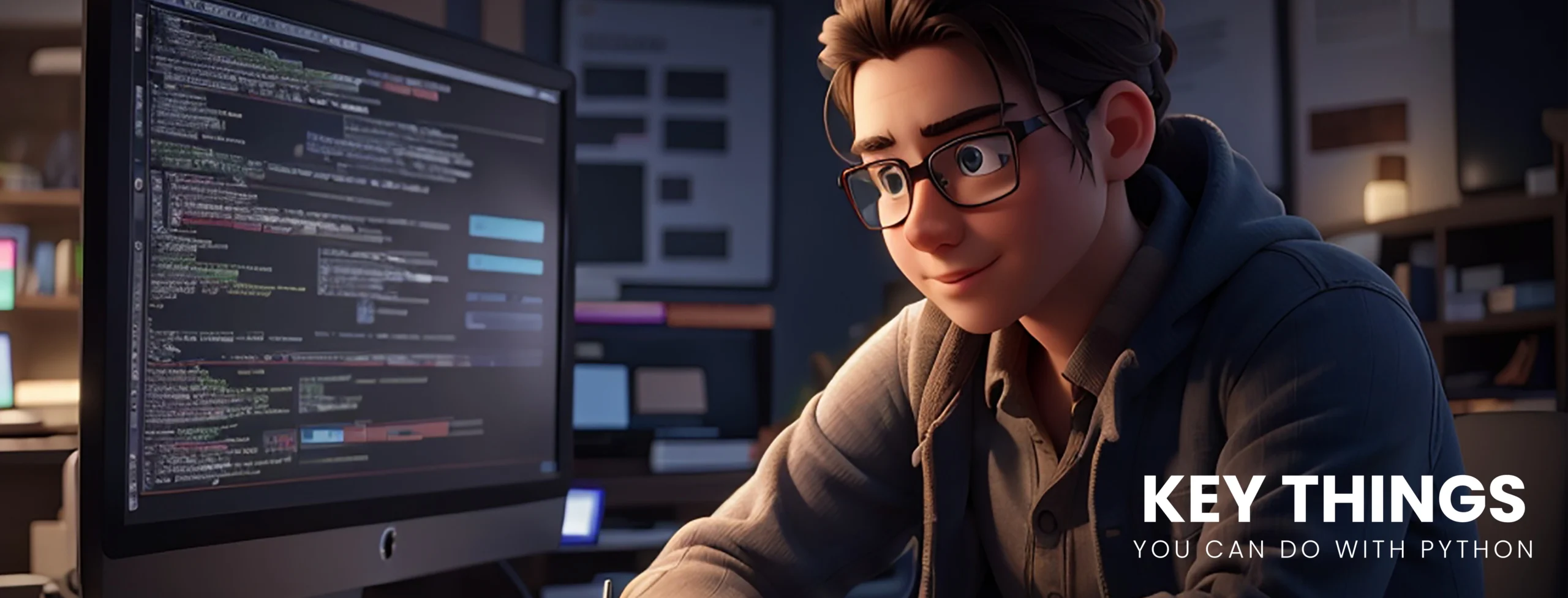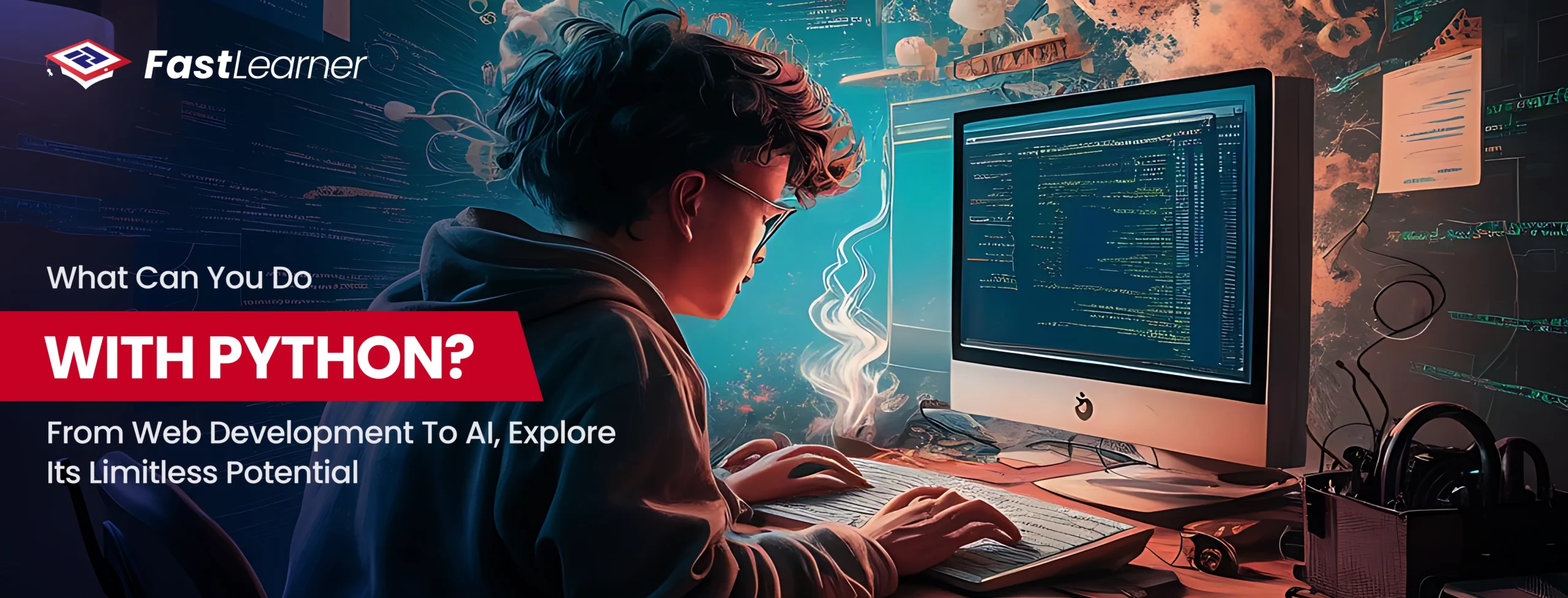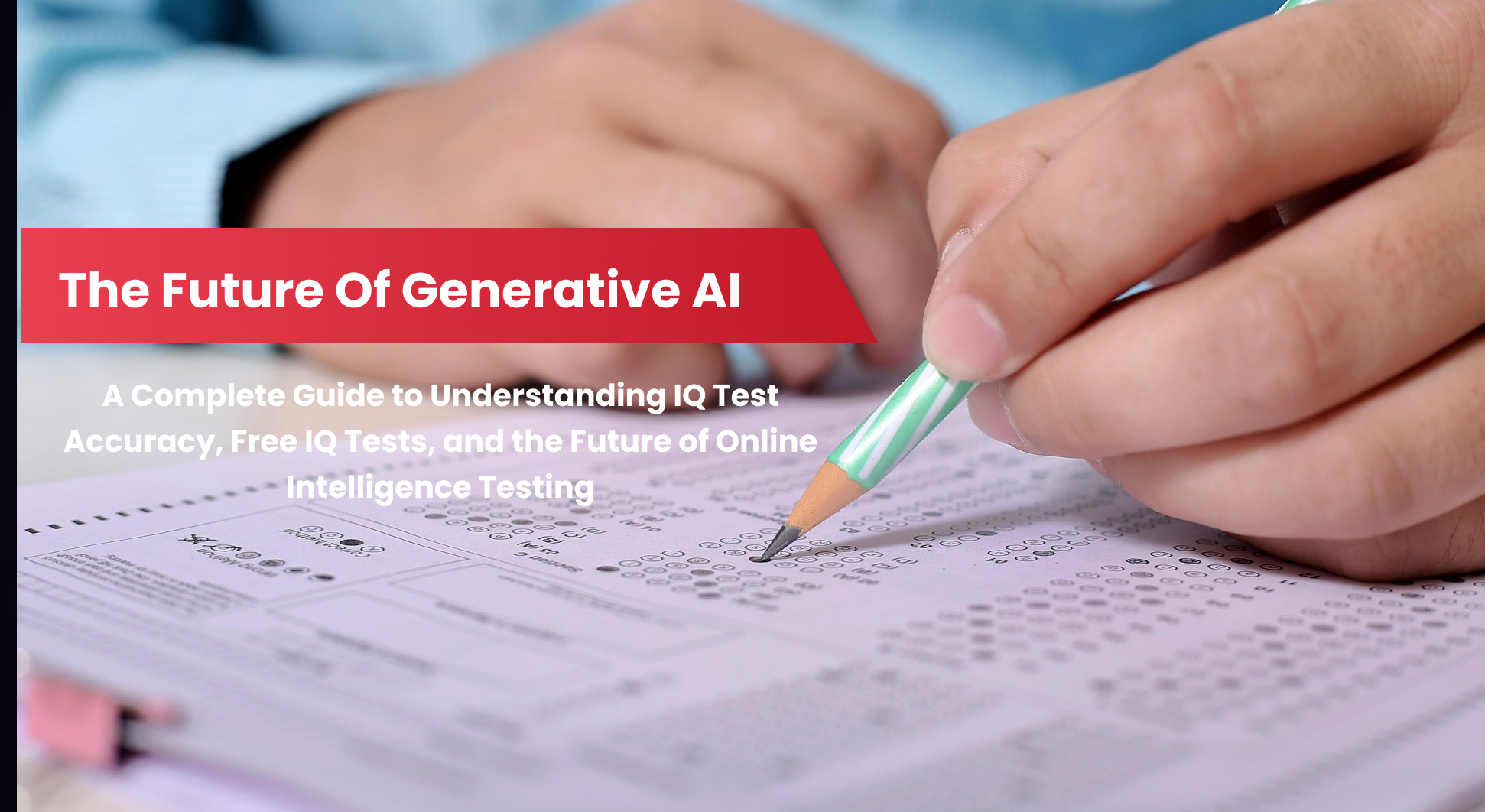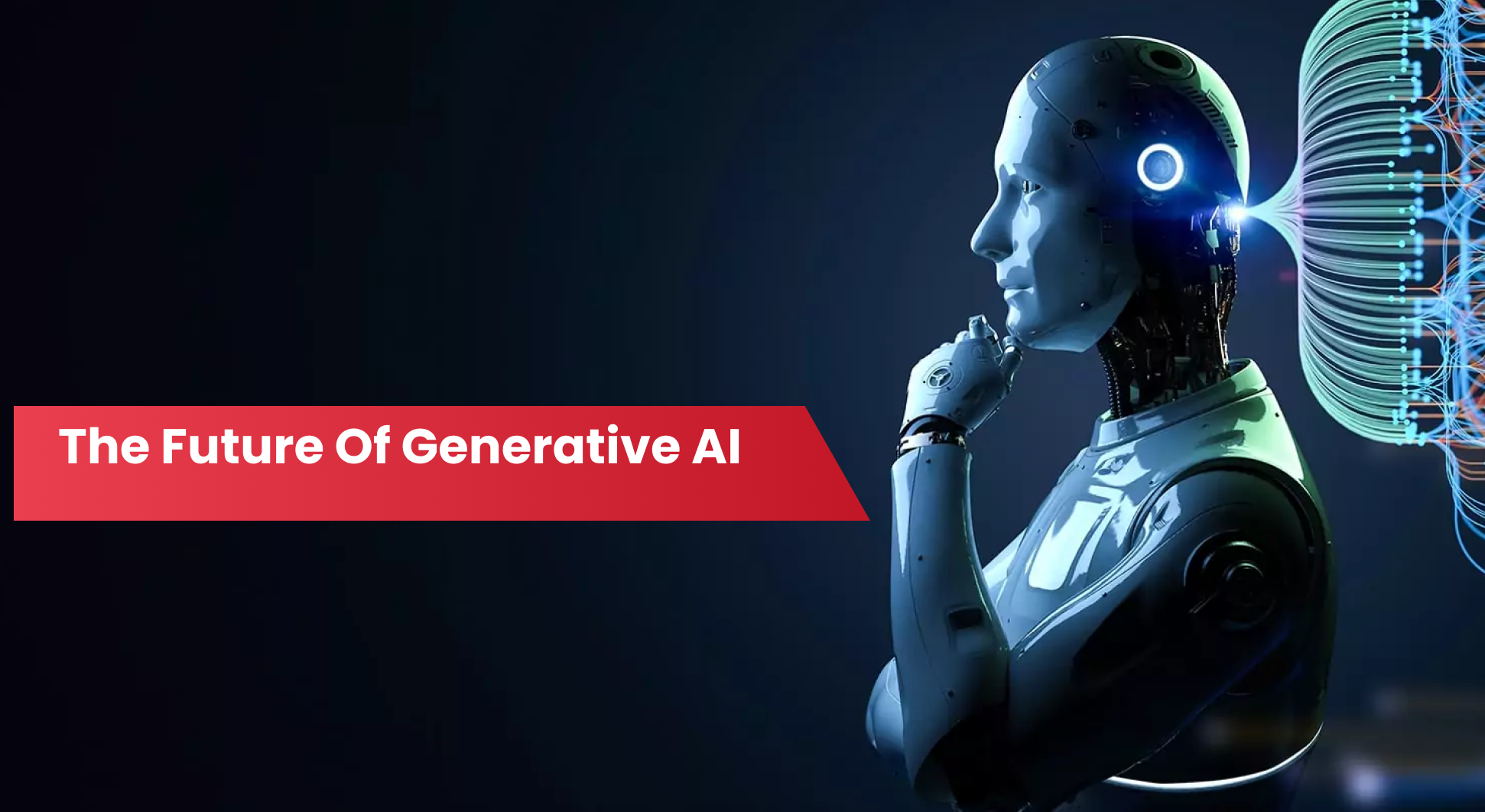Python has become a household name in programming circles and beyond, thanks to its simplicity, versatility, and immense power.
So, what can you do with Python? From web development to AI, and what is its true potential?
The short answer: almost anything! From creating dynamic web applications to revolutionizing industries with artificial intelligence (AI), Python proves itself to be a multipurpose programming language with boundless potential.
But what is Python mainly used for? Let’s dive into the numerous uses of Python programming language and uncover its true capabilities.
What Can You Do with Python? (Brief Overview)
- Understand what Python is and why it is so popular.
- Explore Python’s applications in web development, data analysis, AI, and more.
- Discover how Python is used in automation and scripting.
- Learn about real-world examples of Python applications across industries.
- Find out why Python is a great language for beginners and professionals alike.
What Is Python and Why Is It So Popular?

Before we explore what Python is good for, let’s understand its essence. Python is a high-level, interpreted programming language known for its clear syntax and readability. Designed to be beginner-friendly, Python allows developers to focus on solving problems rather than getting bogged down by complex syntax. But what is the purpose of Python? Its primary goal is to make programming accessible, efficient, and fun—a philosophy it achieves exceptionally well.
Python’s popularity stems from its versatility. It is widely used across industries and disciplines, including web development, data analysis, machine learning, automation, and more. With an extensive library of tools and frameworks, Python is good for both quick prototyping and building robust, large-scale applications.
FastLearner, a quick learning platform offers courses on Python programming. Learn from our platform and enhance your skills.
Key Things You Can Do with Python

1. Web Development
Python simplifies web development through powerful frameworks like Django and Flask. These frameworks provide pre-built modules and tools to handle everything from server-side logic to database management and user authentication. So what are the key things you can do with Python? let’s find out:
- What does Python do for web developers? It streamlines the process, enabling faster development cycles and scalable solutions.
- What can you code with Python in web development? Build dynamic websites, RESTful APIs, and even full-stack web applications.
2. Data Analysis and Visualization
Data is the backbone of the modern world, and Python shines in this domain. Libraries like Pandas, NumPy, and Matplotlib make it easier to analyze, manipulate, and visualize data.
- What is Python coding used for in data analysis? It’s used for tasks like cleaning messy datasets, performing statistical analysis, and creating insightful visualizations.
- Who benefits? From researchers to business analysts, anyone working with data can leverage Python’s capabilities.
3. Machine Learning and Artificial Intelligence
One of Python’s most transformative applications is in AI and machine learning. Libraries like TensorFlow, PyTorch, and Scikit-learn empower developers to create predictive models, neural networks, and intelligent algorithms.
- What is Python mainly used for in AI? Automating tasks, recognizing patterns, and making data-driven predictions.
- Examples: Self-driving cars, recommendation systems, and chatbots.
4. Automation and Scripting
Python can take care of repetitive tasks, making workflows more efficient. Automation scripts written in Python save time and reduce errors.
- Things you can do with Python automation: Web scraping, file organization, email notifications, and more.
- Tools: Selenium and Beautiful Soup for web automation and PyAutoGUI for GUI tasks.
5. Game Development
While Python might not be the go-to language for high-performance games, it’s great for prototyping and creating casual games. Libraries like Pygame allow developers to build 2D games effortlessly.
- What can you code with Python in gaming? Simple arcade games, educational games, and interactive simulations.
- What is Python good for in game design? Rapid prototyping and scripting game logic.
6. Scientific Computing
Python is a favorite among scientists and researchers for its ability to handle complex calculations and simulations. Libraries like SciPy and SymPy make it easier to solve scientific problems.
Uses of Python programming language in science: Modeling natural phenomena, running experiments, and analyzing results.
Why Should You Learn Python?

Given its wide-ranging applications, Python opens up endless opportunities for developers and non-programmers alike. But what can you do with Python as a beginner? Thanks to its simplicity, even newcomers can quickly grasp the basics and start working on real-world projects.
- What is Python coding used for in beginner projects? Automating small tasks, creating personal websites, or experimenting with data analysis.
- Career Prospects: Python developers are in high demand across industries such as technology, finance, healthcare, and education.
According to a recent survey by leftronic , 56% of Python developers work on projects independently. But there are still 40% of them that work in a team and only 4% work as an external consultant or a trainer.
Real-World Applications of Python

1. Tech Giants Rely on Python
Companies like Google, Netflix, and Instagram use Python to power their platforms. For example, Instagram’s backend is largely built with Django, while Netflix uses Python for recommendation algorithms and content delivery.
2. Education and E-Learning
Platforms like FastLearner.ai leverage Python for AI-assisted learning paths, enabling students to acquire skills efficiently. Python’s adaptability makes it perfect for developing interactive educational tools.
3. Healthcare Innovations
In the healthcare industry, Python is used for predictive analytics, patient record management, and even in medical imaging diagnostics.
4. Finance and FinTech
Python’s ability to process vast amounts of data makes it invaluable in the financial sector. It’s used for algorithmic trading, fraud detection, and financial modeling.
The Future of Python

Python’s trajectory shows no signs of slowing down. With advancements in fields like quantum computing and AI, Python is expected to remain at the forefront of technological innovation. Its community continues to grow, contributing new tools, libraries, and frameworks that push the boundaries of what Python can do.
Conclusion - What Can You Do with Python?
So, what can you do with Python? From web development to AI, data analysis to game design, Python proves itself as a versatile and powerful language.
The real question is, what can’t you do?
Whether you’re a seasoned developer or just starting your coding journey, the uses of Python programming language are virtually limitless.
Explore Python’s potential and discover how it can transform your ideas into reality.
FAQs About What Can You Do with Python?
How can Python be used for AI?
Python is widely used for AI due to its simplicity, extensive libraries (e.g., TensorFlow, PyTorch, Scikit-learn), and strong community support. It facilitates machine learning, natural language processing, and deep learning development.
Is C++ or Python better for AI?
Python is preferred for AI because of its ease of use and robust AI libraries. However, C++ can be better for performance-critical tasks like real-time AI systems or game AI.
Is Python fast enough for AI?
Yes, Python is fast enough for most AI applications, especially when using optimized libraries that rely on underlying C/C++ implementations for computational tasks.
Can AI take over web development?
AI can assist in web development by automating code generation, testing, and design tasks. However, it is unlikely to fully replace web developers due to the need for creativity, problem-solving, and human oversight.



